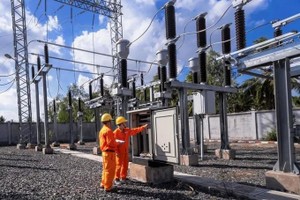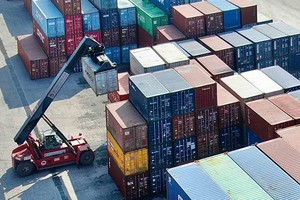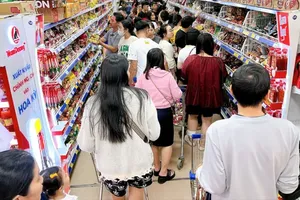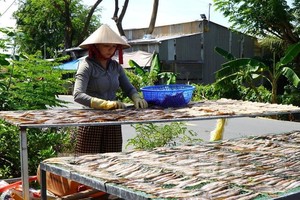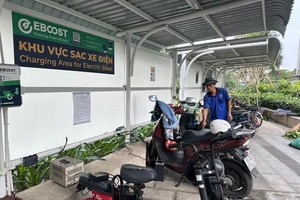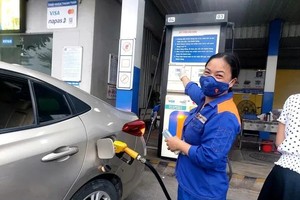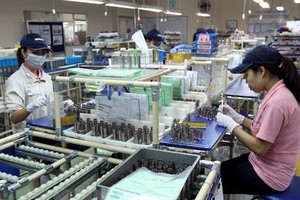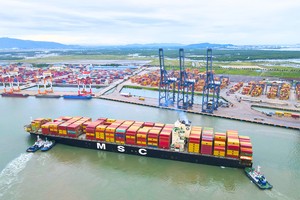
Economic experts observe a contrasting trend as various import-export markets witness a decline, while the UK's market is on an upward trajectory. The number of investment projects initiated by the UK in Vietnam is on the rise, with many British enterprises actively seeking partnerships in the Vietnamese market.
Addressing the seminar on "Seizing Cooperation and Investment Opportunities with British Enterprises under the UKVFTA," Mr. Ngo Chung Khanh, Deputy Head of the Multilateral Trade Policy Department under the Ministry of Industry and Trade, highlighted that since the UKVFTA took effect, the UK has emerged as a particularly significant market for Vietnam.
The primary exports from the UK to Vietnam consist of machinery, equipment, and raw materials for leather, footwear, garments, textiles, and other manufacturing inputs. "Vietnam needs these raw materials to help our companies leverage them for re-export to the UK, thereby capitalizing on the advantages provided by the UKVFTA," shared Mr. Khanh.
Recapping the recent visit by Mr. David Johnstone, Head of Policy & Engagement - FTA Utilization, Department for Business & Trade of the UK, to learn about Vietnam's experience in implementing the CPTPP and express the hope for collaboration in its execution, Mr. Khanh highlighted that both parties shared experiences to strengthen the connection between Vietnamese and British businesses. Mr. Khanh remarked, "How can Vietnamese enterprises become integral in the supply chain of British companies, and conversely, how can British enterprises participate in Vietnam's export ecosystem?" He also noted that the UK excels in financial services.
Since the initiation of the UKVFTA in May 2021, Mr. Bob Fletcher, Head of the Customs and Global Trade Services at Deloitte Vietnam, has evaluated the agreement as yielding considerable advantages for British businesses in Vietnam. The FTA has streamlined procedures and established a transparent business environment, making it more accessible for British enterprises looking to set up, invest, and engage in business activities in Vietnam. Moreover, the agreement has unlocked fresh opportunities for British businesses to broaden their investments in areas such as financial services, technology, and renewable energy in Vietnam.

According to Mr. Bob Fletcher, the areas that British businesses are currently interested in for strengthening investment collaboration in Vietnam encompass renewable energy, including wind energy, energy transmission and storage, financial services, insurance, machinery, equipment, technology transfer, and, lastly, sectors such as education, beverages and food, and the automotive industry.

Despite the challenges posed by the pandemic and economic downturn, there has been a significant increase in the number of projects that British businesses are investing in Vietnam. Currently, the UK ranks 15th out of 143 countries with direct investment activities in Vietnam. The trade volume between the UK and Vietnam has seen a notable upswing in 2022, rising by 10 percent compared to 2021. In the first nine months of 2023, while most markets experienced a decline, the import value from the UK to Vietnam increased by 3 percent compared to the same period in 2022. Concurrently, exports from Vietnam to the UK saw an approximately 1.9 percent increase.

According to Ms. Phan Thi Thanh Xuan, General Secretary of the Vietnam Leather, Footwear, and Handbag Association, while other markets face slumps, exporting Vietnamese leather shoes to the UK has exhibited remarkably positive growth. The UK remains a key market for the Vietnamese leather shoe industry. During the UK's membership in the EU, its import share constituted 25-30 percent of the market. Even after the UK departed from the EU, the Vietnamese Government promptly signed a direct agreement with this market. Thanks to that, the export of Vietnamese leather shoes to the UK has not been disrupted.
"In 2023, as we are aware, the circumstances are extremely challenging, with almost all markets experiencing a decline in exports. Some markets have seen reductions of up to 30 percent. However, the UK market, on the other hand, has posted a significant growth of 11 percent," Xuan noted.










